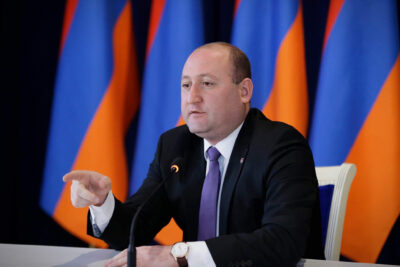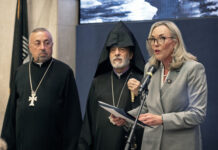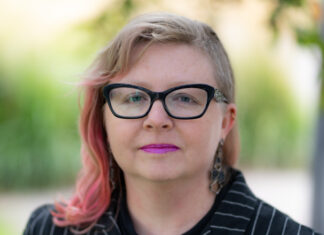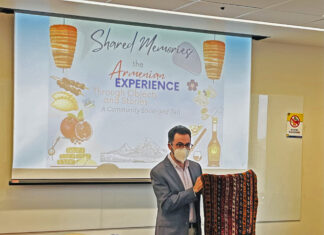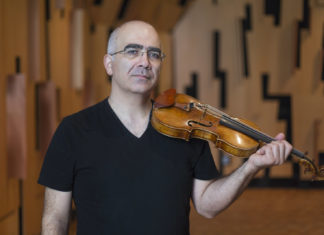BERLIN — If there is one name that calls to mind the conflict-laden relationship between Germany and Turkey, it is Dogan Akhanlı. The Turkish-born German writer has lived in the Federal Republic since 1992, after he fled political persecution in his homeland, and received asylum, then citizenship. Since then, several of his books have been published in German translations, and have received literary prizes.
Yet, even as a German citizen and acclaimed author, he has not escaped harassment from the Turkish authorities. In August 2010, when he flew to Istanbul to visit his dying father, he was seized at the airport, and jailed on hoked-up charges of participation in armed robbery and murder. An international mobilization of intellectuals and political activists led to his eventual acquittal and release. But in Spring 2013 an Appeals Court in Ankara reversed the ruling, reopened the case and issued an international warrant for his arrest. Akhanlı responded by refusing to return to Turkey. In 2016 his book, The Days without Father appeared in German, and told the story of a politically persecuted exile in Germany.
In 2017, while on vacation in Grenada, Spain he was hauled out of his hotel room by police and transferred to Madrid, on the initiative of Turkish authorities, who hoped to extradite him. The case escalated into an international scandal and brought German-Turkish relations to a boiling point (See https://mirrorspectator.com/wp-content/uploads/2017/09/SEPTEMBER-2-2017.pdf)
Again, the writer regained his freedom; and, again, he found refuge in literature. His account of his most recent Kafkaesque experience appeared in a new book, Arrest in Grenada, or Is Turkey Drifting into Dictatorship?
Enhancing Cultural Exchange
Considering his political-literary adventures and the strain they have left on relations between Berlin and Ankara, it is not without a touch of irony that Akhanlı is to receive this special award from the Goethe Institute. The Goethe Institute is named after Johann Wolfgang von Goethe, who, like Friedrich Schiller, is a national poet of Germany. In addition to his own literary works, Goethe was instrumental in building cultural bridges to the Islamic world; this year marks the 200th anniversary of the publication of his West-Eastern Diwan, a collection of his lyrical works inspired by the Persian poet Hafez. As Germany’s cultural representative, the Goethe Institute is active in almost 100 countries with over 150 offices. An official institution, it promotes not only study of the German language but–in the spirit of its namesake–also exchange between different cultures, and supports a vast array of programs in all the arts (www.goethe.de/en/index.html).
